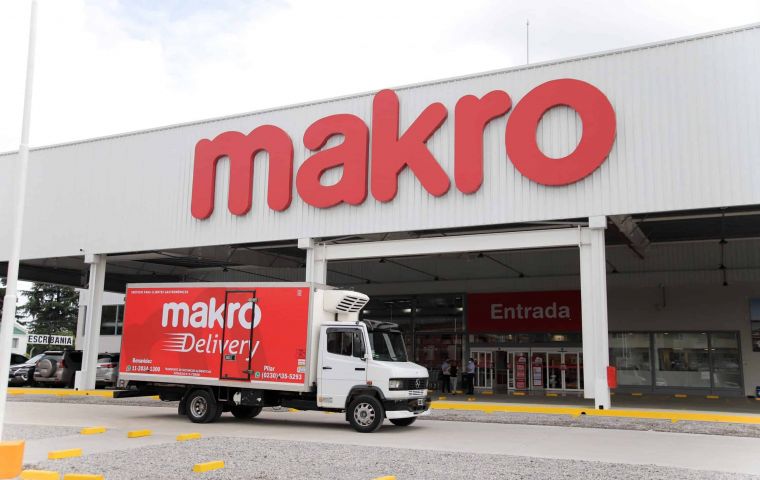MercoPress. South Atlantic News Agency
Giant wholesale chain planning Argentine exodus?
 Makro has been in Argentina since 1988
Makro has been in Argentina since 1988 Makro, a leading wholesale supermarket chain where anyone can shop at more convenient prices, has announced its decision to leave crisis-ridden Argentina after some 30 years in the South American country where sales keep plunging despite President Javier Milei's administration successful narrative. According to the consulting firm Scientia, the wholesale sector faced an 18.8% drop in sales in August alone.
The company reportedly put up all its 24 branches in 10 territories for sale. Makro had already reduced its development in other countries in the region such as Brazil, Peru, and Venezuela. Owned by the Dutch group HSV, Makro entrusted Banco Santander with the liquidation procedures, it was also reported.
Although Makro denied the move, negotiations were said to be underway with potential buyers, some of them already involved in the wholesale and supermarket business. Makro's assets are believed to be worth around US$ 200 million. Makro had landed in Argentina in 1988 through Colombian-born businessman and former Congressman Francisco de Narváez, then owner of the now-defunct Tía chain.
Other players in the wholesale sector who could take over Makro's operations are Diarco, Yaguar, Vital, and Maxiconsumo. Last week, Diarco announced a bold move by accepting US dollars at an exchange rate of their own (AR$ 1,400 = US$ 1), which spares Argentine consumers the need to sell their savings at a rate slightly above AR$ 1,300 to do their everyday shopping. Despite the tag “wholesale,” people may buy any amount of goods. However, no transaction remains anonymous, even if paid for in cash.
“We take your dollars and at the best price. Small face, big face, wrinkled, old...,” Diarco's advertising reads, reflecting the fact that bills with a smaller Benjamin Franklin face or otherwise deteriorated are taken at an even lower value at “caves” (unofficial exchange parlors) or even rejected. The Diarco exchange rate will be published on a daily basis, it was also explained.




Top Comments
Disclaimer & comment rulesCommenting for this story is now closed.
If you have a Facebook account, become a fan and comment on our Facebook Page!